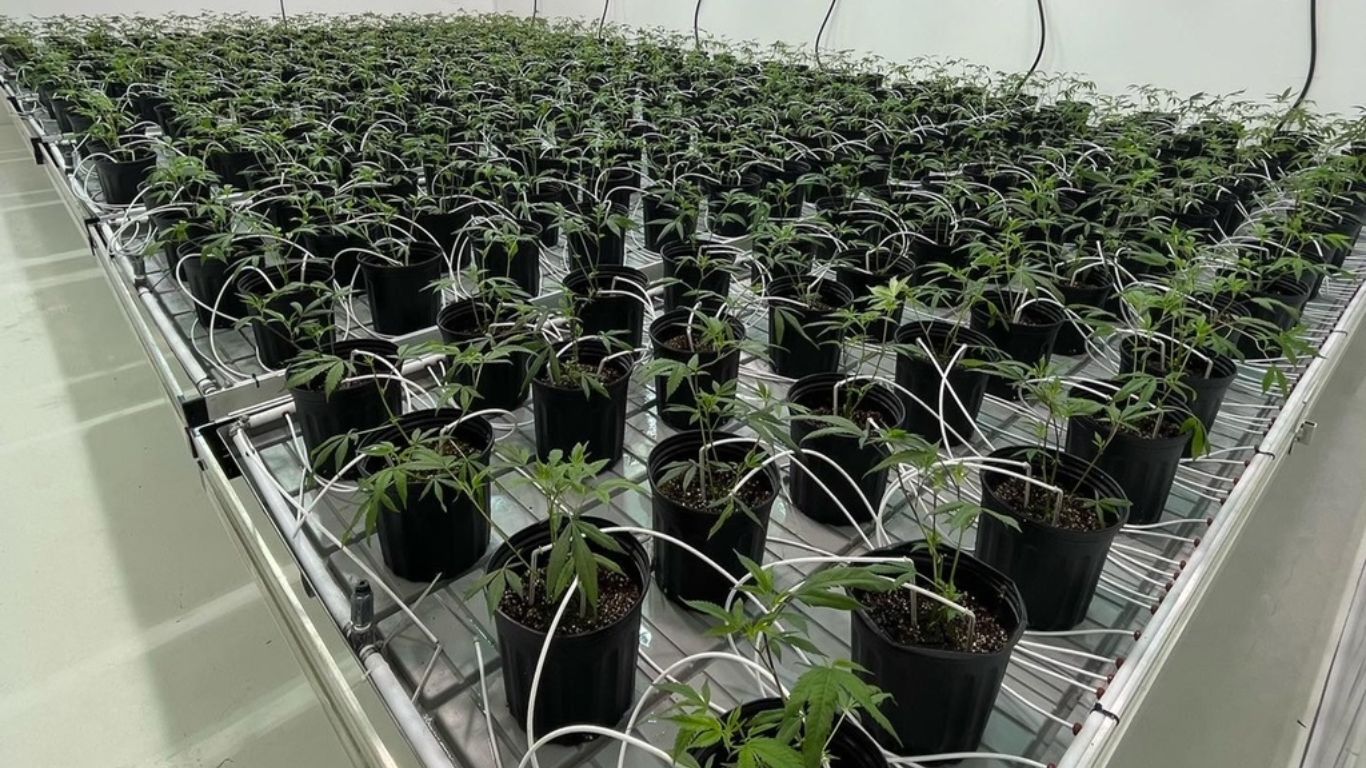
It’s the second week of the year and the cannabis industry has been busy with a holy trinity of news cycles: delayed reports (in the form of the B.C. consumption spaces consultation), layoffs (at Manitoba’s Delta 9), and government cannabis education campaigns (in Alberta and Ontario this time). It was a busy elsewhere, too, and here’s what we didn’t bring you this week.
The famed Lift Cannabis Expo is back in Vancouver this weekend after the pandemic forced a three-year hiatus for the popular trade show. It’s the first one taking place under new ownership—the rights to the event were assumed by the MCI Group in September 2020 after the startup Lift & Co. entered bankruptcy proceedings.
Questions were raised in Newfoundland this week about the future of a $90-million cannabis production facility, previously owned by Canopy Growth, in a town outside of St. John’s that has never been used. Canopy is still the leaseholder to the land (and retains a purchase option on it that matures this year), and they either don’t know or aren’t saying what they plan to do with it. That is prompting one hydroponic farmer to question why the facility—which he says could produce “a huge, staggering amount of food”—hasn’t been repurposed for agriculture.
Plans to build the world’s first pot shop inside an airport terminal at BC’s Prince George Airport are officially grounded due to “changing market conditions,” reported MJBizDaily on Friday. There have been other occasional expressions of interest in bringing cannabis retail into airport terminals over the past couple of years, but both police and airline executives have generally been a bit iffy on the idea.
The Ottawa Citizen published a piece this week looking at how cannabis retailers in the nation’s capital are grappling with the intense clustering of stores. The primary subject of the story is High Ties, a retail store that opened in arguably the best commercial real estate in the city—the hip, high-traffic Glebe neighbourhood. Rather than shut down or sell, the store’s owner is now looking to relocate. The rapid scale-up of the retail sector in Ontario has been the subject of much debate over the past two years, with some saying the problem is too many stores, while others say the problem is that they are heavily clustered, so it will be interesting to see if relocations out of pricey downtown neighbourhoods grow into a larger trend.
In a bit of heartwarming news, the compassionate call from a Penticton cannabis shop owner last week for a thief to return that store’s tip jar (stolen in December) has a happy ending, reports Penticton Western News. The thief returned the money from the tip jar with an apology on Wednesday, shortly after a separate store owner, Amanda Stewart, saw her on the street and confronted her. “She was very remorseful,” said Stewart. “There’s something to be said about second and third chances.”
The horse race between the biggest cannabis producers has a new leader this week. Following a new calculation by CIBC, Village Farms overtook Tilray to claim the largest market share (7.8 percent to 7.3 percent, respectively). Tilray, for its part, reported another steep quarterly loss—$61.6 million in Q2 of 2022—and hinted in its earnings call that it was eyeing more acquisitions in the fruit and beer industries.
It was decidedly better news for Organigram, though, who reported a $5.3 million Q1 profit this week. Not sure how many people might have predicted a couple of years ago that Organigram would emerge as one of the more stable and consistently profitable of the big cannabis producers, but that’s what’s happened—and going into an extremely tight credit cycle the company says it has cash that it hopes to put to work this year.
The New Brunswick-based producer was also featured in an article in Friday’s Financial Post that looked into the way cannabis producers are attempting a process of “premiumization,” refining their product by focusing on terpene levels and boutique cannabinoids to target connoisseur consumers. Within the industry, this might be old news, but writer Bianca Bharti elicited some interesting comments from industry analysts attempting to glean some insights into the changing tastes of fickle cannabis consumers.
The province of New Brunswick and the Wolastoqey First Nation look to be headed for a showdown at the end of this month, when a retail tax-sharing agreement between the First Nation and the provincial government is set to expire, CBC’s Jacques Poitras reports. Wolastoqey Chief Patricia Bernard says they are planning to replace the agreement with their own tax laws that she says will make tobacco and cannabis “way cheaper.” The agreements were at one time seen as a model for provincial relationships with First Nations communities over retail cannabis taxes, until they were scrapped in early 2021.
And finally, for anyone looking ahead to next week’s plans, the CBC said that next Friday’s edition of flagship science show The Nature of Things will be all about the latest scientific research on all things cannabis, touching issues like impaired driving, medical applications, and public health questions. (Will soon-to-be-retired host David Suzuki hit a dab on air? Who knows!)












